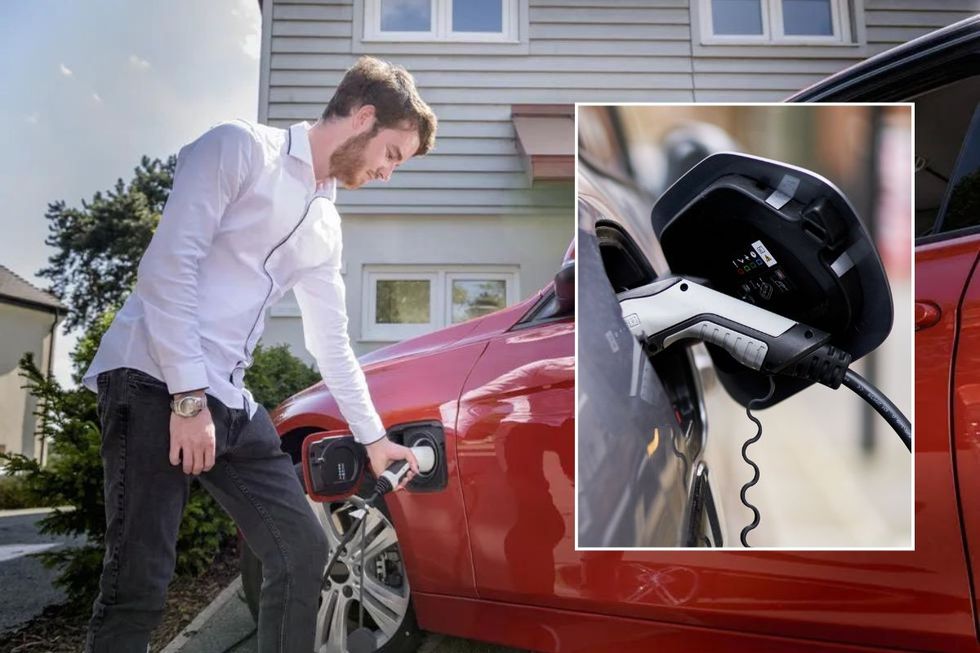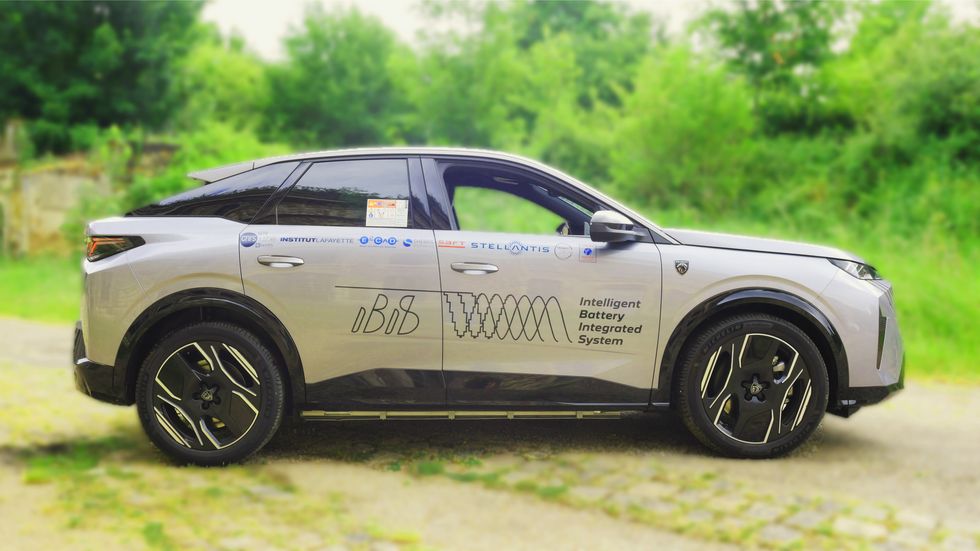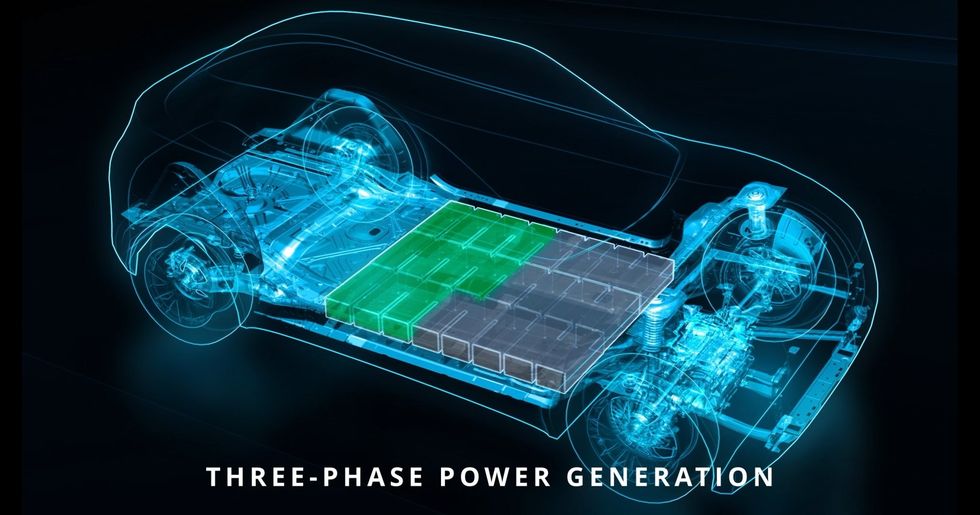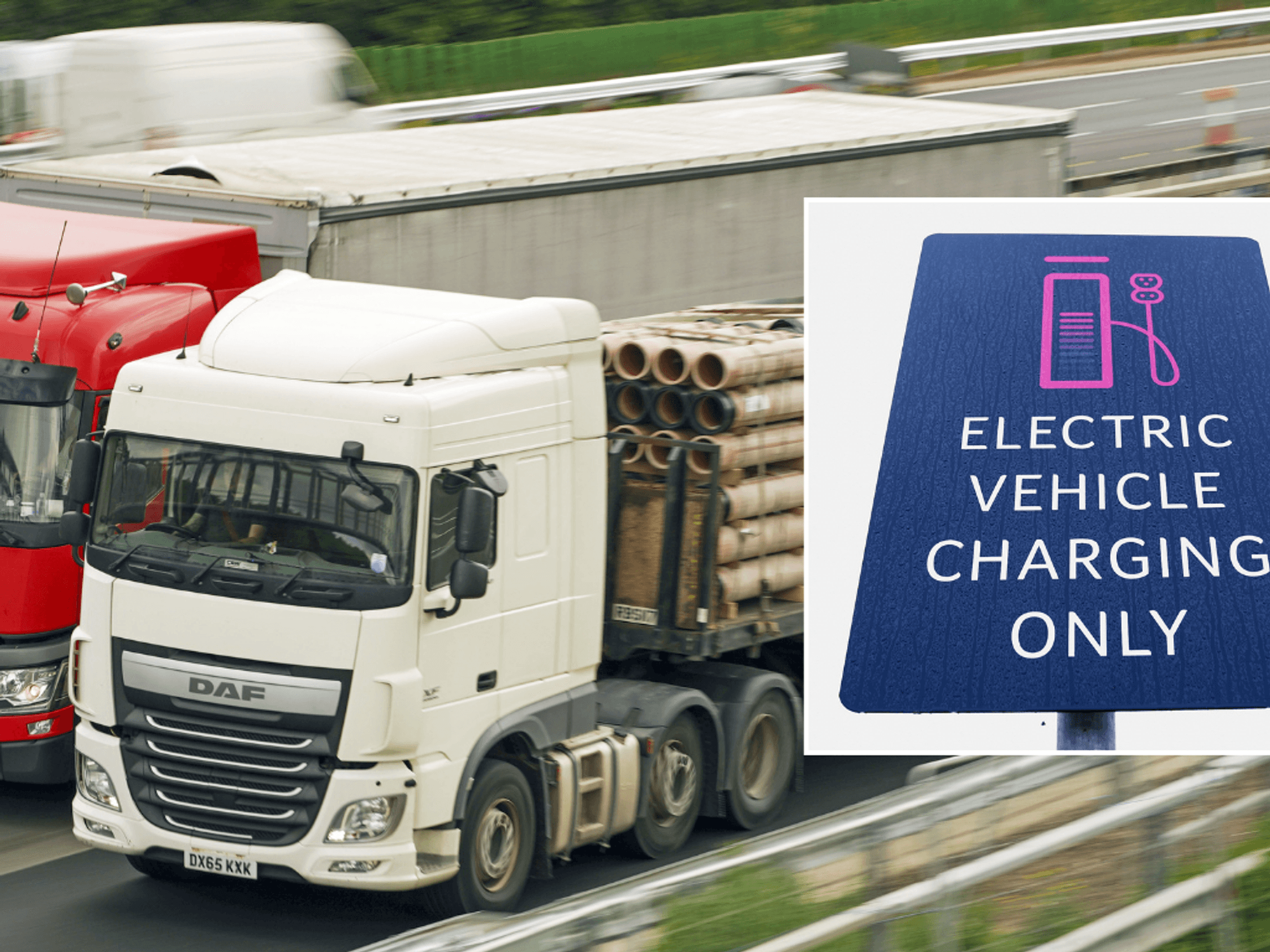Electric car breakthrough will slash charging times, improve efficiency and cut EV prices - 'Significant'

Stellantis hopes to introduce the IBIS technology into its electric vehicles over the coming years
Don't Miss
Most Read
Stellantis has unveiled new electric vehicle battery technology that could transform the experience of zero emission cars.
The manufacturer has announced the Intelligent Battery Integrated System (IBIS), which could provide a number of major benefits to motorists.
The IBIS system improves vehicle space and simplifies any vehicle maintenance. This is done by removing the need for separate charger and inverter components.
The "significant breakthrough" was produced by Stellantis in partnership with Saft, a subsidiary of TotalEnergies, in a French-based collaborative research project.
Do you have a story you'd like to share? Get in touch by emailing motoring@gbnews.uk
TRENDING
Stories
Videos
Your Say
A Peugeot E-3008 was chosen as the first fully-functional, IBIS-equipped electric vehicle, which is built on Slellantis' STLA Medium platform.
Stellantis said this was based on years of design and simulation by the automaker, Saft and other organisations, including E2-CAD, Sherpa Engineering, CNRS, Université Paris-Saclay, and Institut Lafayette.
The IBIS battery will help electric vehicles see a boost of up to 10 per cent energy efficiency and a 15 per cent power gain, despite remaining the same size.
Early testing results from the IBIS battery show a 15 per cent reduction in charging times, including reducing home charging using a 7kW AC charger from seven hours to six hours.

The new battery technology could have a huge impact on charging times for motorists
|GETTY/PA
Ned Curic, Chief Engineering and Technology Officer at Stellantis, said: "This project reflects our belief that simplification is innovation.
"By rethinking and simplifying the electric powertrain architecture, we are making it lighter, more efficient, and more cost-effective.
"These are the kinds of innovations that help us deliver better, more affordable EVs to our customers."
The technology will also reduce the vehicle's weight by around 40kg, in addition to providing an extra 17 litres of storage space.

Stellantis' IBIS system has been tested in a prototype Peugeot E-3008 for the first time
|STELLANTIS
LATEST DEVELOPMENTS:
Stellantis also highlighted that there was "enhanced potential" for second-life battery reuse, in addition to easier servicing.
Hervé Amossé, EVP Energy Storage Systems at Saft, said the IBIS battery project was a "powerful testament" to the brand's leadership.
He added: "By embedding IBIS technology into our next-generation applications, we’re unlocking a new era of intelligent, flexible, and sustainable energy solutions.
"Saft continues to lead the way in advanced research, offering long-term, cost-effective solutions tailored to evolving market needs."

The new Stellantis battery technology could slash charging times by 15 per cent
|STELLANTIS
The French Government has supported the IBIS project through the France 2030 investment programme, with the second phase of the project being launched in June this year.
Stellantis said it would now transition to real-world testing in varying driving conditions, which would enable the technology to be included in cars before the end of the decade.
It added that the IBIS architecture could also be used in rail, aerospace, marine and data centres.
Stellantis could use the impressive IBIS technology to accelerate the uptake of electric vehicles under its production regime, including Abarth, Alfa Romeo, Citroen, DS Automobiles, Fiat, Jeep, Maserati, Peugeot, Vauxhall and more.











